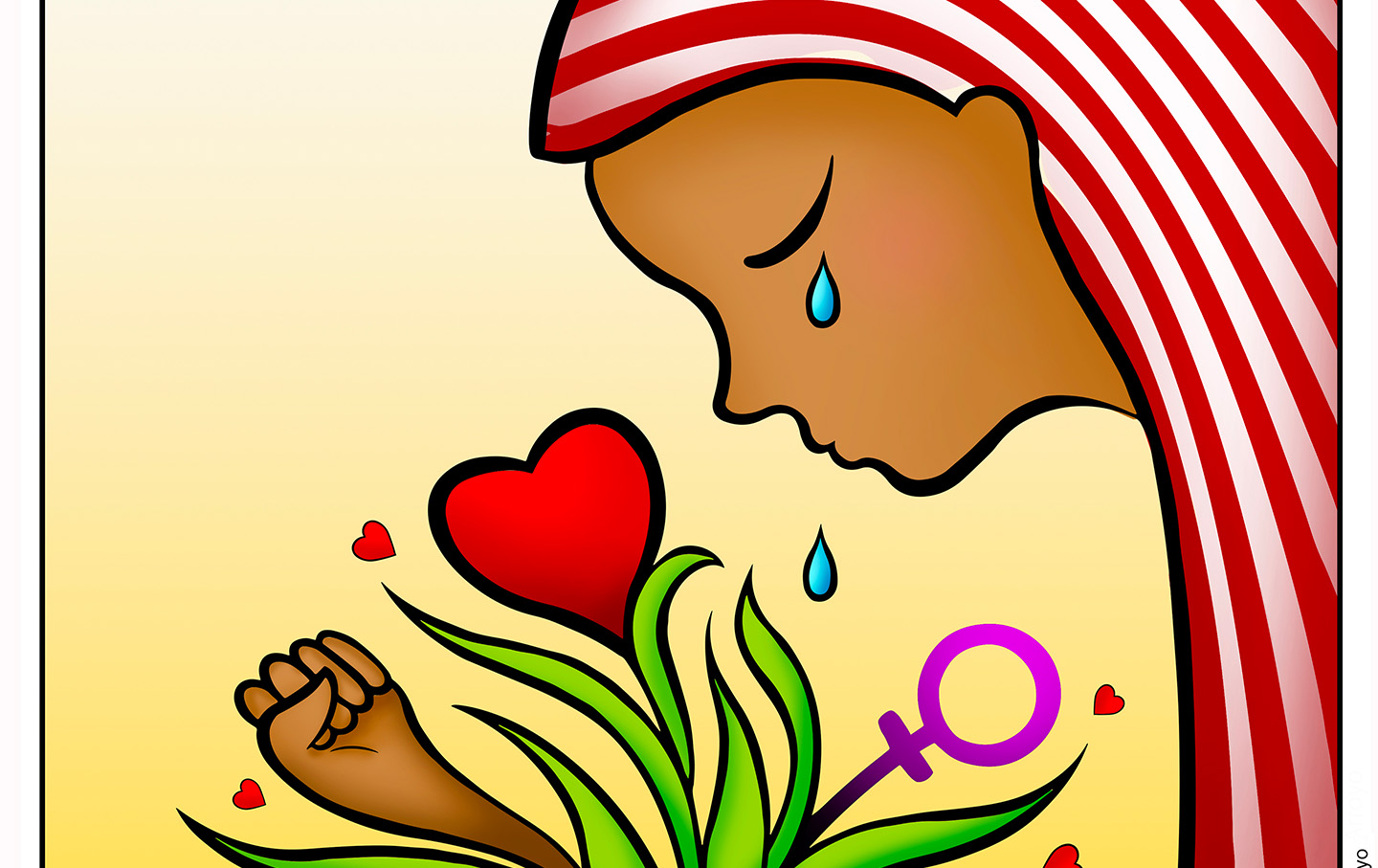The World’s Ultimate Frisbee Community Is Revolting Against Its Leaders Over Gaza
After the head of the international group overseeing Ultimate refused a Palestinian call to support a cease-fire, players across the globe fought back.

Last November, Ultimate Palestine, the local governing body and member of the World Flying Disc Federation—which governs flying disc sports such as Ultimate Frisbee, more commonly known as Ultimate—issued a plea to the flying disc community to “defend Palestinian human rights” and to call for an immediate cease-fire in Gaza.
“We ask the global flying disc community to affirm the humanity and dignity of the Palestinian people, take a clear position against this war, and condemn the 75 long years of Israeli occupation, apartheid and brutal oppression of our families and communities,” their open letter read. “We also encourage those who have previously argued that sports are apolitical to reexamine their positions and to draw on the philosophical framework of ‘Spirit of the Game’ to emphasize the role of justice and speaking truth to power in addressing circumstances of violence and inequity.”
Over two months later, the blood-soaked assault on the Palestinian people at the hands of the Israeli government remains ongoing. The number of Gazans killed has passed 27,000. But the WFDF has remained silent as one of its member federations begs for support. The most it has offered was a November 5 statement in which WFDF President Robert “Nob” Rauch wrote:
“We are devastated by the ongoing violence that has engulfed Palestine and Israel and by the resulting devastation in the region. At WFDF, we condemn violence, attacks and the loss of life in all its forms. We believe in the inherent value of every human life and hope for peace. Our heartfelt thoughts are with our disc communities in the region and their families.”
There have been no statements in support of a cease-fire. (The WFDF did not respond to repeated requests for comment).
“When we say that silence is complicity, it’s exactly that,” says Daniel Bannoura, cofounder of Ultimate Palestine. Or, as the D.C. Scandal, a Washington-area Ultimate team that backed the call for a cease-fire, said in a post issued after the WFDF statement, “‘Heartfelt thoughts’ are not enough.”
The WFDF’s stance raises questions about the role of international federations when it comes to conflict between member countries, and highlights how Western exceptionalism creates double standards when it comes to how sports bodies respond to human rights violations. Moreover, Ultimate is perhaps the only sport that has seen any sort of coordinated protest effort from other players. Members of the larger global Ultimate community have heeded Ultimate Palestine’s call for solidarity; the actions being taken in support of their fellow Ultimate players are unprecedented and set an example for the rest of the sports world to learn from.
The Palestine Flying Disc Association began in the mid-2010s as a group of eight friends meeting for practices in Beit Sahour, a Palestinian town east of Bethlehem in the occupied West Bank. Bannoura had discovered the sport in college in the United States in 2008 and brought it back with him when he returned to Palestine. He founded Ultimate Palestine in 2015.
Now, Ultimate Palestine has developed into a thriving community with around 100 members across the West Bank and the Gaza Strip The group hosts weekly practices, clinics at local schools, and training for coaches. It also competes in international tournaments. In 2020, Ultimate Palestine was approved for membership in WFDF and recognized as an official athletic association by the Palestinian Olympic Committee.
But the war has stopped all of this progress in its tracks.
“The West Bank had been planning to do a lot of expansion but then that hasn’t happened because of the war,” says Bannoura. “Obviously, everything in the Gaza Strip came to a halt.”
On November 15, Muhammad Shakir Safi, one of Ultimate Palestine’s youth coaches in Gaza, was killed in an Israeli air strike. His body was discovered beneath the rubble of his house. Safi had received his coaching certificate in January 2020 alongside 20 other participants at a training in the Gaza Strip. For the next three years, he coached beach Ultimate practices for Gazan youth, as well as leading many camps and practices. He was described as “a kind and cheerful person despite all the hardship and hurt he experienced in the Gaza Strip.”
Many other players and coaches have lost family members, friends, and loved ones, Bannoura says. Despite this, the World Flying Disc Federation has continued to remain silent on the question of a cease-fire, and has refused to condemn Israel specifically or pledge its support for Ultimate Palestine.
The WFDF made a different choice in March 2022, when its board released a solidarity statement offering its full support to the people of Ukraine and the Ukrainian Flying Disc Federation (UFDF) following Russia’s invasion, which it condemned as a “clear act of war, which has rarely been seen since the mid 20th century.”
“The WFDF Board affirms its full solidarity with the Ukrainian Flying Disc Federation (UFDF), the Ukrainian Olympic community, and all the people of Ukraine,” the board said in a press release. “In particular, it will do what it can to support the members of the Flying Disc community in Ukraine.”
Not only that, the WFDF suspended the National Federations of Russia and Belarus, banning athletes and officials from participating in WFDF-sanctioned events. There has been no such action taken against the Israeli Flying Disc Association.
And Ultimate Palestine isn’t even asking for sanctions. All they want is support and a call for a cease-fire from the WFDF—something that, again, was given to the people of Ukraine. “WFDF strongly keeps up our hopes that the conflict can be solved through peaceful means and not by war,” WFDF President Robert “Nob” Rauch said after Russia’s invasion.
“We would love to ask for a more critical analysis of the structures of power and conversations about the 75 years of apartheid and occupation,” says Bannoura. “But right now we are just saying, ‘Hey, can you just make a stand on a cease-fire?’ Our call is not political, it is humanitarian.”
The WFDF has been a recognized member of the International Olympic Committee (IOC) since 2015, and the Palestine Olympic Committee received recognition in 1993. Flying disc sports are not currently Olympic sports, but the WFDF has been lobbying for years to get them there. They were on the short list for the 2028 Los Angeles Games, but ultimately did not make the cut; they’re hoping to make a push to be included in the 2032 Brisbane Games.
Many International Federations look to the IOC for guidance when it comes to international politics. And in this case, the IOC has also remained silent on the issue of Palestine despite the Palestinian Football Association’s saying that Israel has killed 88 top-tier athletes since October 7, 67 of whom played soccer. This is also despite the historic Yarmouk Stadium’s being used as a makeshift internment camp by Israeli troops—and that the IOC’s own Olympic Charter declares access to sport to be a basic human right.
“It’s really rare for an international federation to cut against the grain when the International Olympic Committee has been so silent about Palestine, strikingly silent, conspicuously silent, irresponsibly silent,” says Dr. Jules Boykoff, the author of Power Games: A Political History of the Olympics, and an academic who specializes in politics and dissent.
“With the structure of the Olympic system being as it is, whereby these international federations—especially the really small ones [like the disc sports]—they’re overwhelmingly reliant on the largesse of the International Olympic Committee in doling out its funds. So there’s a built-in incentive not to do anything from the perspective of the international federation that would anger or get on the wrong side of the International Olympic Committee.”
Ultimate players in Palestine have faced tremendous barriers when it comes to being able to play and compete, both within Palestine and on an international level, Bannoura says. Even getting to practices or games between towns is hindered by the Israeli government’s checkpoints, adding hours of travel time. Movement in the West Bank is heavily restricted by the military occupation there. Meanwhile, Palestinians in Gaza have virtually no mobility at all because of the Israeli blockade.
International competition faces even greater challenges from travel restrictions. Many players do not have access to travel visas. For instance, Ultimate Palestine had gotten a team together to compete at the Windmill European Championship, but only three players were able to get their visas to go to the Netherlands, forcing them to put a makeshift team together at the last minute with friends from other countries.
Popular
“swipe left below to view more authors”Swipe →Even when they can get visas to travel, it’s a massive undertaking. Palestinians are not permitted to fly from Tel Aviv in Israel without special permission, and the Palestinian airport in the Gaza Strip was rendered inoperative by Israeli air strikes in 2001; it has never reopened. In order to fly, Palestinians must cross into Jordan—one of the few countries Palestinians can access without having to apply in advance for a visa—which adds significant costs, plus at least half a day of travel time.
But Ultimate Palestine has still been able to make an impact despite these strictures. Sports are a significant source of community for Palestinians, just like anyone else in the world, and Ultimate is a casual and friendly sport. The most common way it is played in Palestine is coed, except in the Gaza Strip, where Bannoura says society is a bit more conservative.
Ultimate is governed by what’s called “Spirit of the Game”—meaning there are no officials. Players must self-officiate their own games, which is something that can sometimes be challenging for the Palestinian kids as they are learning to play. “Palestinians are not used to justice,” Bannoura explains. “Usually the ref they have is Israel, and the ref is against them. But also more significantly, they have never had the chance to express themselves and advocate for themselves. Ultimate has been such a powerful tool for me to work with these kids. It encourages them to develop the communication skills, the leadership skills, the conflict resolution skills, to stand up for themselves, learn how to speak loudly, to speak clearly, and to challenge the system and to pursue justice together.”
While the WFDF remains silent about a cease-fire, other members of the global Ultimate community are heeding Ultimate Palestine’s call. “A lot of the players are mobilized,” says Bannoura. “We’re noticing that players have realized that sports is not an escape.”
On November 5, just hours after winning the 2023 World Beach Ultimate Championships, the US Women’s National Beach Ultimate team posted a call for a cease-fire on Instagram. They used the platform provided by their victory to fundraise to support Palestinians in Gaza. Meanwhile, the Boston Brute Squad committed to supporting Ultimate Palestine during the 2023 USA Ultimate National Championships by delivering a solidarity statement during game interviews, having signs on the sidelines during their games (and providing signs for other teams that wanted them), and using their social media platform to amplify action items.
At the end of November, members of DiscNY, a nonprofit that organizes and runs frisbee events in New York City and New York State, wrote an open letter of solidarity, encouraging other members of the Ultimate world to sign on. “We (national WFDF member associations, local disc organizations, ultimate teams, and ultimate leaders) call upon you, the international sports federation responsible for world governance of flying disc (frisbee) sports, to join us in active advocacy for an immediate and permanent ceasefire in Gaza and the provision of humanitarian aid to the Palestinian people in Gaza,” the letter reads.
Every Ultimate game ends with what’s called a “spirit circle,” in which the two teams come together and offer feedback about the game, resolve any potential conflicts, and address any concerns. Brittany Kaplan, the president of DiscNY, brought the open letter to every spirit circle she was in during the Pan Am Ultimate Championships in Punta Canta, Dominican Republic. Kaplan had planned to read the open letter during one of the streamed games that she played because streamed games are broadcast worldwide. However, there was a new WFDF policy that required approval for any statements made on the stream and Kaplan was not permitted to read the letter on the stream.
Kaplan says she was able to speak with WFDF Vice President Brian Gisel, who indicated that the board had read the letter. “What I took away from that conversation was that [WFDF] as an organization is disconnected from the teams that they serve,” says Kaplan. “That emboldened all of us who were working on spreading the letter to continue to try to get people to sign to just show the solidarity that we know is there.”
As of January 10, the deadline to sign the letter, 140 disc federations, organizations, and teams had signed, including 13 of the 90 national disc federations. Those 13 NGBs include Palestine, Lebanon, Qatar, Kuwait, Indonesia, Brunei, Jordan, Argentina, Afghanistan, Egypt, Mauritius, Malaysia, and Sri Lanka.
The names of the NGBs who have signed are as significant as those who haven’t. Zidan points out that the divide is similar to the one we see on the world stage at large: “the West versus the rest.”
“It’s very, very telling that the main proponents to putting their weight behind recognition are the countries that already either recognize Palestine or believed in its cause,” he notes.
In addition to the open letter is another ongoing protest led by US players. As of January 18, over 180 American players and coaches had signed a letter announcing that they will be abstaining from the World Ultimate Championships in 2024. Many of those players declined invites to 2024 tryouts for Team USA, including Octavia Payne, arguably the world’s best player in women’s Ultimate. Part of their reasoning included the silence from USA Ultimate (USAU) regarding the ongoing war in Gaza, as well as USAU’s refusal to sign the larger open letter from the global community. (USAU declined to comment for this story).
“We do not feel represented by a government that vetoed the UN’s resolution for a Gaza ceasefire and continues to fund the Israeli military and their destruction of Palestinian homes and lives,” the letter reads. “The occupation of Palestine and ongoing genocide is deeply interconnected to the US militaristic and imperialistic agenda, and our silence as Americans is deadly.”
This level of current coordinated protest and activism around the Palestinian cause is unprecedented in the sports world, particularly in Western countries. There has been near-universal silence on the issue of the genocide of Palestinians and the apartheid state Israel has created, even from athletes who are usually politically outspoken. Members of the US Ultimate community hosted a virtual teach-in with Ultimate Palestine so athletes could learn more about the issues facing Palestinian players. Nearly 300 people attended.
There has been a stark split within Ultimate when it comes to the organizing efforts, however. Almost every team or player who has signed either of the open letters has been from the women’s division.
“I think the main purpose of this is really to get people to reflect on what their priorities are in life and what their values are,” says Amy Zhou, a Boston Brute Squad member who has declined her invite to tryout for Team USA. “Some people can just play Ultimate and not think about what’s going on in the rest of the world, as Palestinians are being murdered. So [this action is] really to draw attention to that, to get people thinking and reflecting and to amplify the voices of Ultimate Palestine, who have asked us to stop playing at the international level while this genocide is happening.”
The solidarity in Ultimate is a sign of political progress for a sport that is, in many ways, uniquely primed for it—many players discover the game on college campuses, which tend to skew more progressive and encourage dissent and radical thought. USAU has one of the most inclusive gender-participation policies in all of sports. But it’s also exposing players to disillusionment from the bodies that govern the sport they love so dearly.
“How dare you pretend to be an ethical organization that cares about its players and cares about what’s good and what’s right but then you cannot make a simple statement?” says Bannoura. “In many ways, the more silent they are, the more they expose themselves as hypocritical and as apathetic and as not consistent.”
More from The Nation

Human Rights for Everyone Human Rights for Everyone
December 10 is Human Rights Day, commemorating the anniversary of the Universal Declaration of Human Rights (UDHR), one of the world's most groundbreaking global pledges.
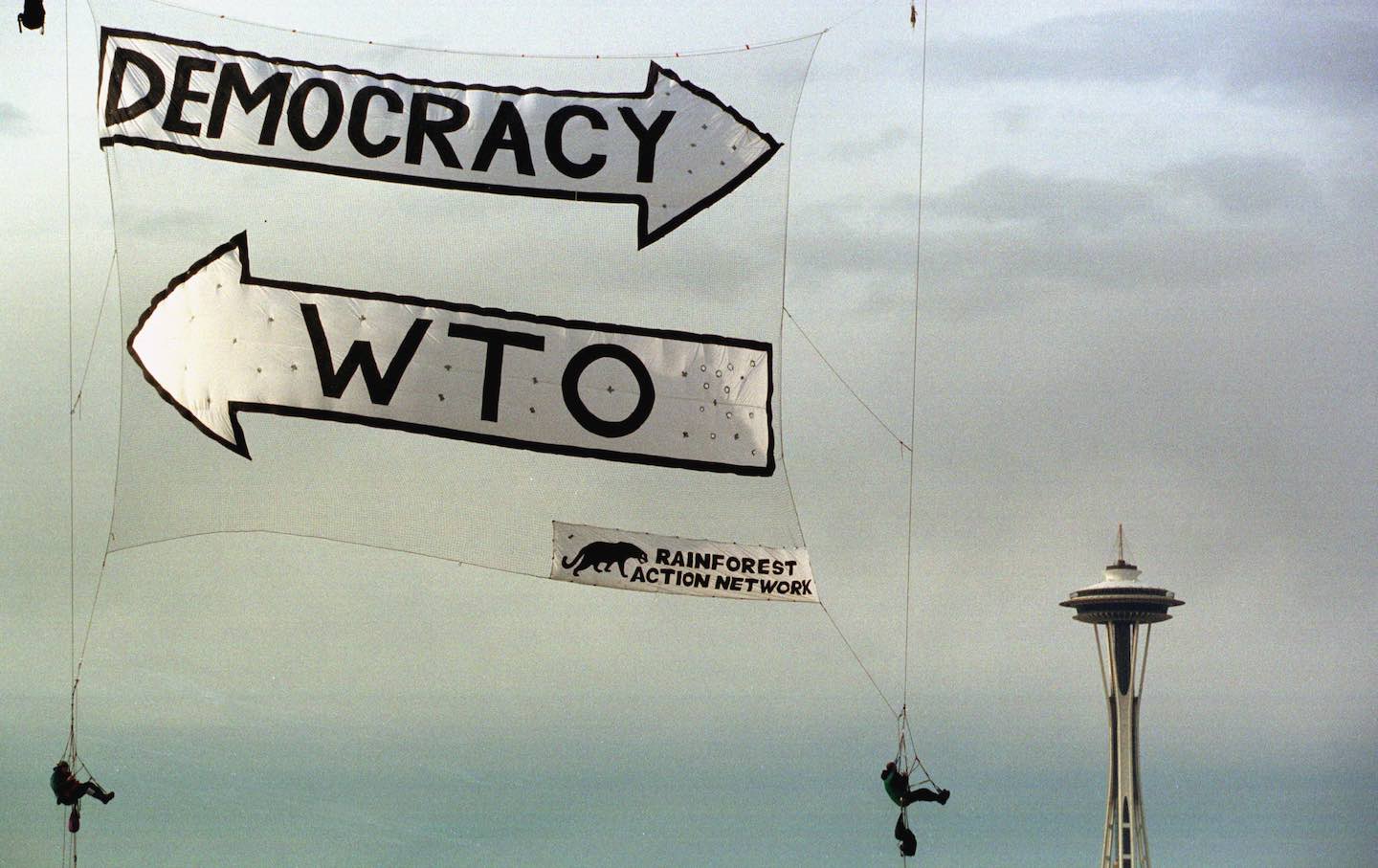
25 Years Ago, the Battle of Seattle Showed Us What Democracy Looks Like 25 Years Ago, the Battle of Seattle Showed Us What Democracy Looks Like
The protests against the WTO Conference in 1999 were short-lived. But their legacy has reverberated through American political life ever since.
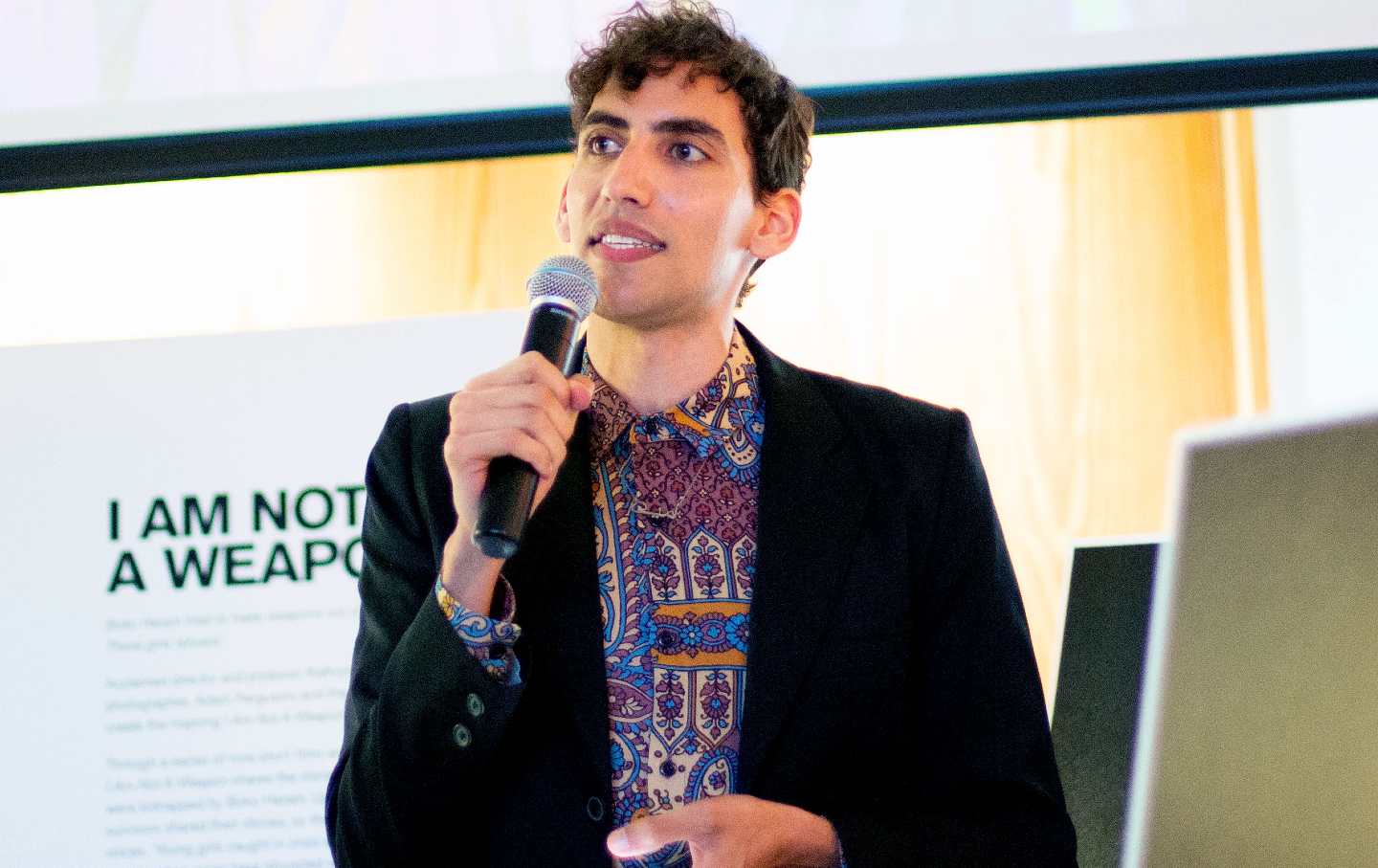
Hollywood’s Vocal Actors Union Goes Silent on a Gaza Ceasefire Hollywood’s Vocal Actors Union Goes Silent on a Gaza Ceasefire
Amin El Gamal, head of SAG-AFTRA's committee on Middle Eastern and North African members, has advocated for a statement supporting a ceasefire in Gaza—so far without success
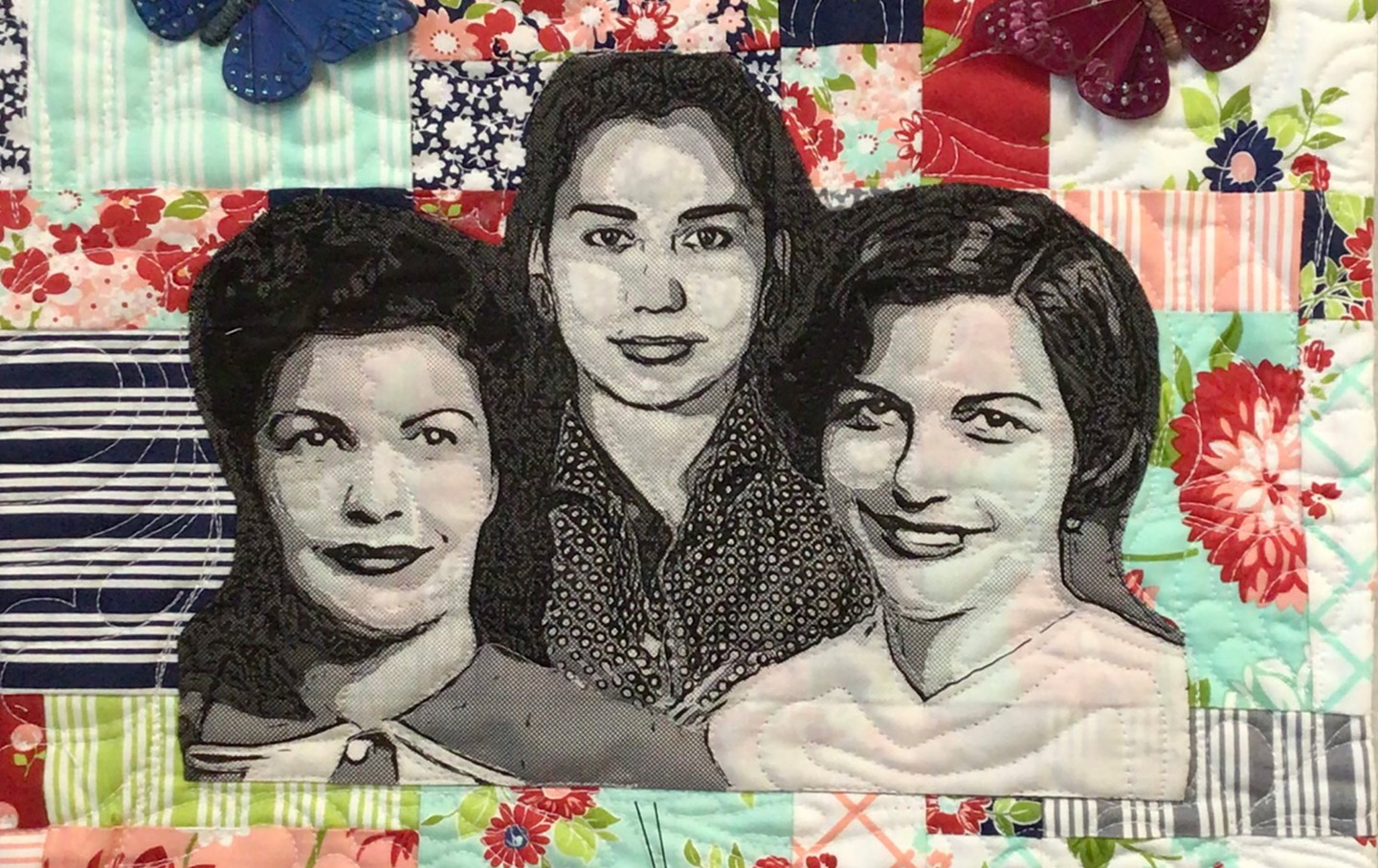
The Mirabal Sisters The Mirabal Sisters
Patria, Minerva, and María Teresa Mirabal were sisters from the Dominican Republic who opposed the dictatorship of Rafael Trujillo; they were assassinated on November 25, 1960, und...
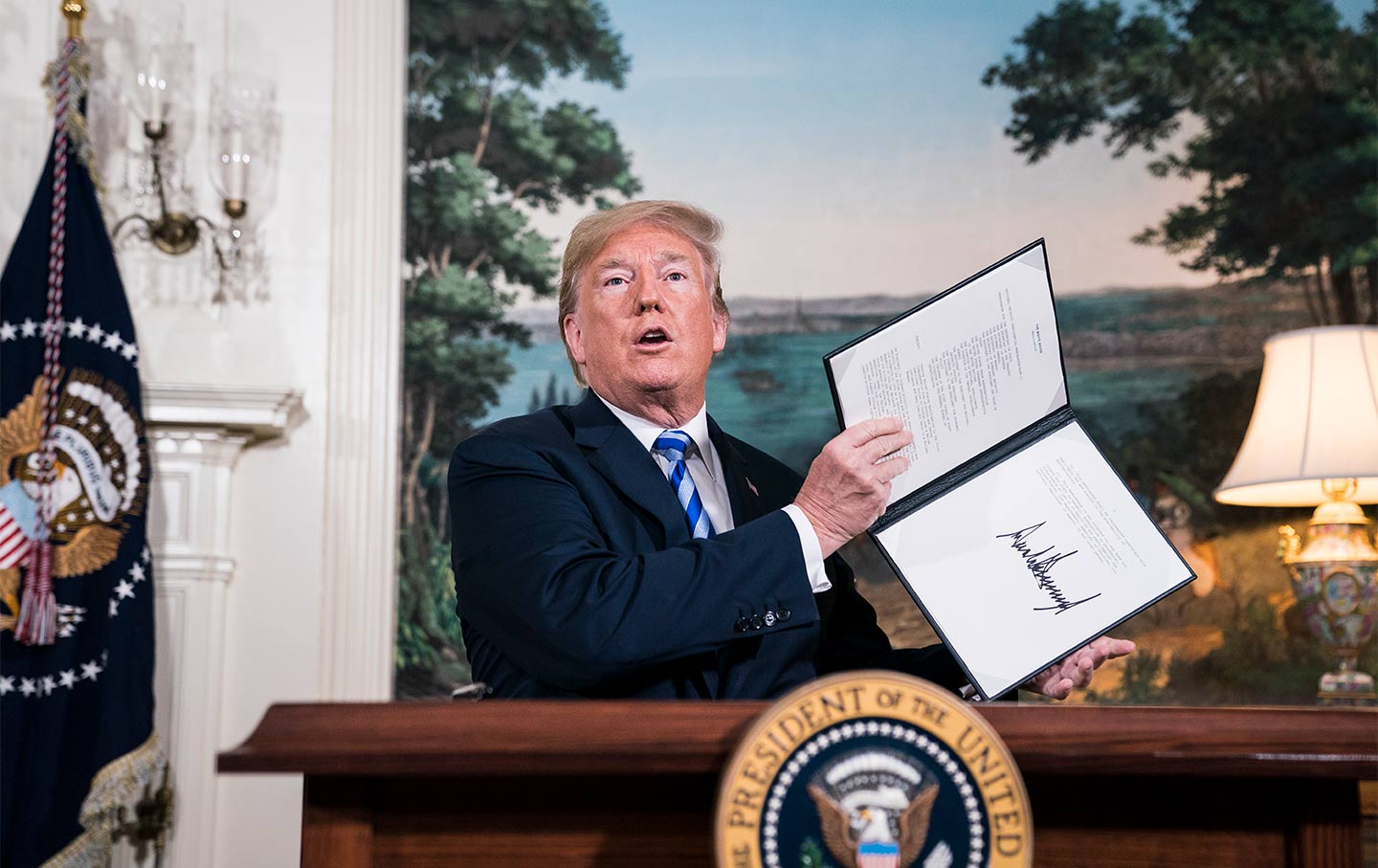
What Will a Peace Movement Look Like Under Trump’s Second Presidency? What Will a Peace Movement Look Like Under Trump’s Second Presidency?
An all-hands-on-deck approach to the coming world of Donald Trump and crew is distinctly in order.

